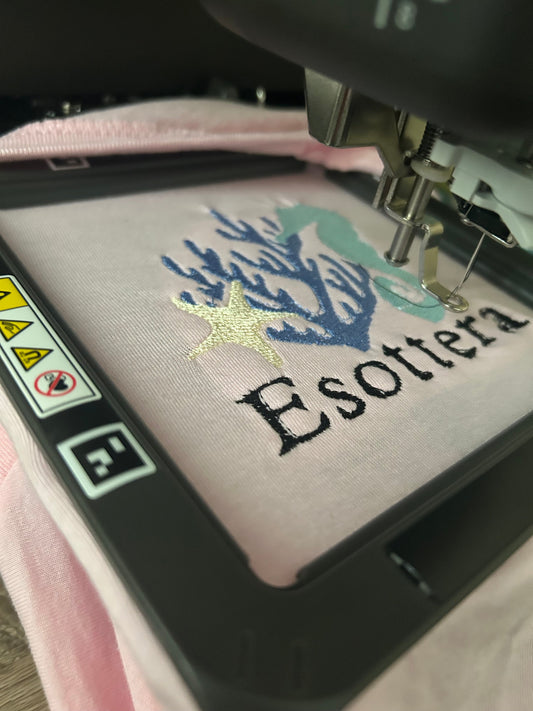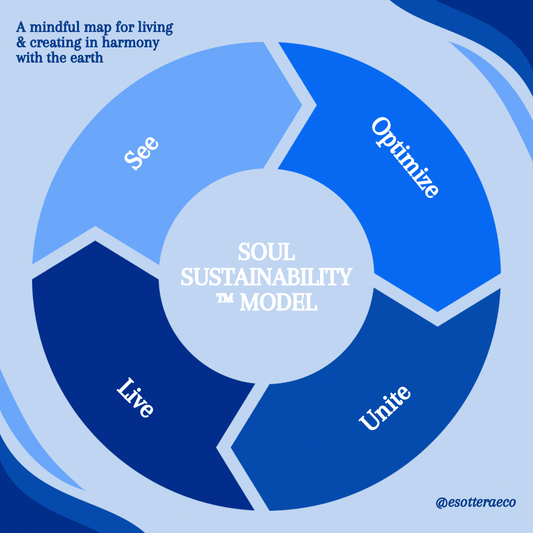
🚶♀️ Car Free Day – September 22nd: A Step Toward Sustainable Mobility
"Small steps towards sustainability can create a wave of change. Car Free Day is a reminder that every choice we make has the power to shape a greener future."
- Unknown
🌍 What is Car Free Day?
Car Free Day, observed annually on September 22nd, is a global event that encourages individuals, businesses, and communities to leave their cars behind and explore alternative, sustainable modes of transportation. The goal is to raise awareness about the environmental impact of excessive car use and to promote cleaner, healthier alternatives like walking, cycling, public transport, and carpooling.
As a brand committed to sustainability, Esottera recognizes the significance of this day. Transportation is one of the biggest contributors to greenhouse gas emissions, and by taking part in Car Free Day, we can help reduce the carbon footprint of our daily commutes and take a stand for cleaner air, healthier cities, and a more sustainable future.
In this blog post, we’ll delve into the environmental and social benefits of reducing car usage, how to participate in Car Free Day, and how Esottera and our eco-conscious community can embrace sustainable mobility to make a positive impact on the planet.
🌍 The Environmental Impact of Cars
Cars are a fundamental part of modern life, but they also come with significant environmental costs. The global transportation sector is responsible for approximately 24% of global greenhouse gas emissions, with road vehicles contributing the majority of that figure. Here’s a breakdown of how cars impact the environment:
🌱 1. Carbon Emissions
The burning of fossil fuels (such as gasoline and diesel) in vehicles releases large amounts of carbon dioxide (CO2) into the atmosphere. CO2 is a greenhouse gas that traps heat and contributes to global warming. As more people rely on cars for transportation, the amount of CO2 emissions continues to rise, exacerbating climate change.
-
Car emissions are also linked to smog, which negatively impacts air quality, causing respiratory problems and other health issues.
🌍 2. Air Pollution and Health Risks
Air pollution from car exhausts contains not only CO2, but also a range of harmful substances, such as nitrogen oxides (NOx) and particulate matter. These pollutants contribute to the formation of ground-level ozone, which can have serious health consequences, including:
-
Respiratory issues: Chronic exposure to air pollution can lead to asthma, bronchitis, and other respiratory problems.
-
Cardiovascular diseases: Long-term exposure to pollutants can increase the risk of heart disease and stroke.
-
Premature deaths: Air pollution is responsible for millions of premature deaths each year, particularly in urban areas where traffic congestion is highest.
By reducing car use, we can lower air pollution, improve public health, and create cleaner, more livable cities.
🌱 3. Resource Consumption
Cars require vast amounts of energy to operate, and their production involves the extraction and processing of natural resources such as oil, metal, and plastic. The manufacturing process also generates significant emissions, further contributing to environmental degradation. Additionally, the extraction and use of fossil fuels depletes natural resources and contributes to habitat destruction.
The extraction and refining of oil (a primary source of fuel for most vehicles) is energy-intensive, and the pollution from oil drilling operations can contaminate local ecosystems, harming wildlife and plant life. By driving less and reducing our reliance on cars, we can help conserve these precious resources and reduce the environmental impact of their extraction.
🌍 The Social and Economic Benefits of Car Free Day
Beyond the environmental benefits, Car Free Day also offers a range of social and economic advantages that can contribute to a more sustainable and equitable world. Here are just a few:
🌱 1. Improved Urban Health
When fewer cars are on the road, air quality improves, which leads to better health outcomes for everyone. But that’s not all-Car Free Day also encourages active transportation, such as walking and cycling, which helps improve overall physical health.
-
Walking and cycling are excellent forms of exercise that can reduce the risk of chronic diseases, such as obesity, diabetes, and heart disease.
-
Increased physical activity also promotes mental well-being, reducing stress, anxiety, and depression.
Additionally, reducing the number of cars on the road can help create more pedestrian-friendly environments, with wider sidewalks, cycling lanes, and green spaces that improve the quality of life in urban areas.
🌍 2. Decreased Traffic Congestion
Traffic congestion is a common problem in cities around the world. It leads to longer commute times, increased stress, and lower productivity. On Car Free Day, when people opt for alternative transportation, we can experience firsthand the benefits of less traffic:
-
Shorter commute times: With fewer cars on the road, traffic moves more efficiently, and people can get to their destinations faster.
-
Reduced stress: Commuting in heavy traffic can be stressful, but without the gridlock, people can enjoy a more relaxed journey.
By embracing alternative transportation options, we can build more efficient, people-friendly cities where traffic is minimized, and everyone can enjoy a better quality of life.
🌱 3. Economic Savings
While the environmental and health benefits of reducing car use are important, there are also economic advantages for individuals and communities. Car ownership comes with significant costs, including:
-
Fuel: The price of gasoline can be volatile, and the cost of filling up a car adds up over time.
-
Maintenance and insurance: Cars require regular maintenance and insurance, which can be expensive.
-
Parking: In urban areas, parking can be scarce and expensive.
By opting for alternative forms of transportation, such as public transit, cycling, or carpooling, people can save money on fuel, maintenance, and parking. In the long term, this can lead to a more sustainable and affordable lifestyle.
🌍 How to Participate in Car Free Day
Car Free Day is an opportunity for individuals, communities, and businesses to take a break from their cars and embrace more sustainable transportation options. Here are some practical ways to participate and make a difference:
🌱 1. Walk or Bike
For short trips, consider walking or biking. These modes of transportation are not only good for the environment but also provide an excellent opportunity to enjoy the outdoors and get some exercise. If you live close to your workplace, school, or local shops, walking or biking can be a quick, eco-friendly way to get around.
🌍 2. Take Public Transit
Public transportation is one of the most effective ways to reduce emissions and alleviate traffic congestion. On Car Free Day, try taking the bus, subway, or train instead of driving your car. Public transit helps reduce the number of vehicles on the road, which leads to cleaner air and less traffic.
🌱 3. Carpool or Ride-Share
If public transit isn’t an option, consider carpooling or using a ride-sharing service. By sharing a ride with others, you reduce the number of vehicles on the road, lowering emissions and reducing traffic congestion. Plus, it’s a great way to connect with others and save money on gas.
🌍 4. Support Sustainable Mobility Initiatives
If you’re part of a community or business, consider organizing Car Free Day events, such as bike rides, walking tours, or eco-friendly transportation challenges. Encouraging your peers to participate in Car Free Day can inspire others to adopt sustainable travel habits.
At Esottera, we’re proud to support initiatives like Car Free Day that encourage eco-conscious living and sustainable mobility. By reducing our reliance on cars, we can help reduce emissions and contribute to a cleaner, healthier world.
🌱 Esottera’s Commitment to Sustainable Mobility
At Esottera, we believe that sustainability extends beyond the products we create—it’s a way of life. As part of our commitment to reducing our carbon footprint, we encourage our customers and community to explore alternative, eco-friendly transportation options.
Here’s how we’re incorporating sustainability into our business:
-
Eco-Friendly Packaging: We use compostable and recyclable packaging materials to reduce waste and environmental impact.
-
Sustainable Product Materials: Our products, like organic cotton hoodies and recycled polyester patches, are made with sustainable materials that minimize harm to the planet.
-
Carbon Offsetting: We actively offset the carbon emissions generated by our operations through tree planting and other sustainability initiatives.
By supporting brands like Esottera, you are contributing to a more sustainable future-one where cleaner air, healthier communities, and a thriving planet are a reality.
🌍 Conclusion: Taking Steps Toward a Sustainable Future
Car Free Day on September 22nd is a powerful reminder that we all have a role to play in reducing emissions and promoting sustainable transportation. Whether you’re walking, biking, taking public transit, or carpooling, every small action contributes to a cleaner, healthier world.
At Esottera, we’re committed to doing our part to reduce our environmental impact and support a more sustainable future. Together, we can create a world where the reliance on cars is minimized, and sustainable mobility becomes the norm.
Let’s take action on Car Free Day and continue making strides toward a zero-emissions future for our planet and future generations. 🌍
#CarFreeDay #SustainableMobility #EcoFriendlyLiving #SustainableTransportation #GreenFuture #ReduceEmissions #Esottera #Sustainability #EcoConscious #WalkAndBike #ZeroEmissions
















































